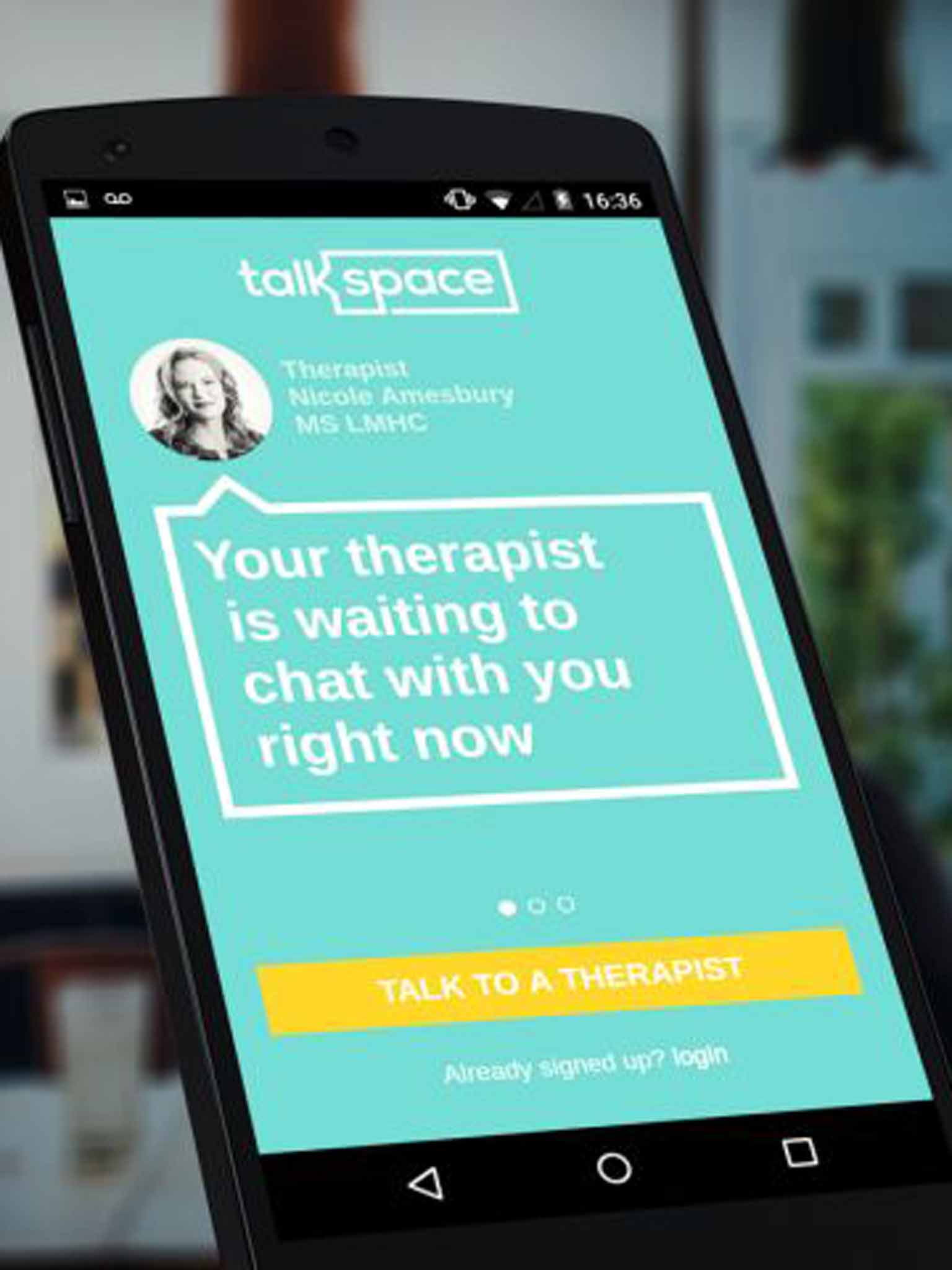Social media 'rehab': Is a 24/7 texting helpline really the best method?
Therapists have developed a 12-week course to wean dependent people off their screens

Social media has created dependency issues; research has proven it. Academic studies have linked apps such as Facebook, Instagram and Twitter to symptoms of depression, anxiety and general dissatisfaction.
Therapy website Talkspace has a solution: a new 12-week plan to address social-media dependency. That's right, exchange texts with a real therapist to talk through your dependence – not "addiction," mind you – to your phone. Created in 2012, the Talkspace app offers text-based therapy provided by 200 therapists to its current 150,000 registered users. But unlike texting a friend, a parent or a significant other, on the other end is a therapist. It's the gig economy, but for therapists.
The launch includes an installation in New York's Flatiron District, where passersby are encouraged to look in a mirror and use the hashtag #reflectreality.
Nicole Amesbury, a licensed therapist who is head of clinical development at Talkspace, says the fact that the service is on smartphones – perhaps next to Facebook, Instagram and Snapchat – is sort of the point. "There's a line in therapy: you have to start where they are," she says. "If you can't meet your client where they are in the world, you can't help someone. We need to meet them where they are, however they feel comfortable."
Talkspace began as a way to "break down the barriers" to traditional therapy, says co-founder Roni Frank. The 41-year-old had started therapy in her late twenties to address issues with her marriage. The success of the sessions drew her into studying the field. While she worked as a software developer, Frank started researching psychology. Her interest spiked when she read statistics that, while one in five Americans has suffered from mental health issues, a much smaller proportion receives any care.
Frank identified three main barriers to seeking therapy: cost, access and stigma. Each of those, she thought, could be addressed by moving therapy online – and on a smartphone.
"Look around today, and you'll see everyone's on their phones. Texting has become a big part of our daily lives. Therapy should be made to fit into our lives today," Frank says.
In the early tests, Frank and her co-founder (and husband) Oren Frank discovered that their users did not want to have to schedule a session, rather they craved the flexibility of communicating the same way they connect with other aspects of their lives – whether it be texting a friend, ordering food or posting on social media.
As the founding of Talkspace was inspired by Frank's own interests, she also realised her own need to address social-media dependency. The most striking awareness came from going on a retreat in an area where she was without mobile phone reception.
"Every day without a connection I started getting more anxious. When I did have a connection, I was scrolling through Instagram and posting, rather than being in the moment with the people around me. I don't think that's very healthy," Frank says.
Frank worked with Amesbury and other therapists on her team to develop a programme (as opposed to program). For Talkspace, the general plan is not focused on diagnosing addiction. It's about addressing dependency. While there's an outline to a three-month system (month one: identifying behaviours; month two: assessing thinking patterns; month three: creating management strategies), each programme is tailored to the individual.
"Social media at its best is supposed to connect us but also it's a whole set of things we need to manage that most people don't know how to control," Amesbury says. "It's changed how people think of breaking up, what people constitute as cheating." However, she's not about shutting it all off. She notes that, while there is value to social networks – such as renewing old connections – there are also strategies in the new programme to reduce use.
Social media companies and analysts may not be happy. They have come to boast about the number of views and amount of watch-time on their sites. For example, Facebook CEO Mark Zuckerberg reported in the company's 2014 second-quarter results ithat the average user in the United States spends 40 minutes per day on Facebook (recent research from GlobalWebIndex reveals that Britons spend one hour and 20 minutes each day managing an average of four social networks).
But if you do decide that texting is the answer to spending less time on your smartphone, the cost of Talkspace's social media-dependency plan is $399 (£250). Unlimited messaging therapy on the app costs $100 (£65) per month – with 24/7 access to a dedicated therapist. Just don't try and friend them on Facebook.
A version of this article first appeared in 'Newsweek'
Subscribe to Independent Premium to bookmark this article
Want to bookmark your favourite articles and stories to read or reference later? Start your Independent Premium subscription today.

Join our commenting forum
Join thought-provoking conversations, follow other Independent readers and see their replies